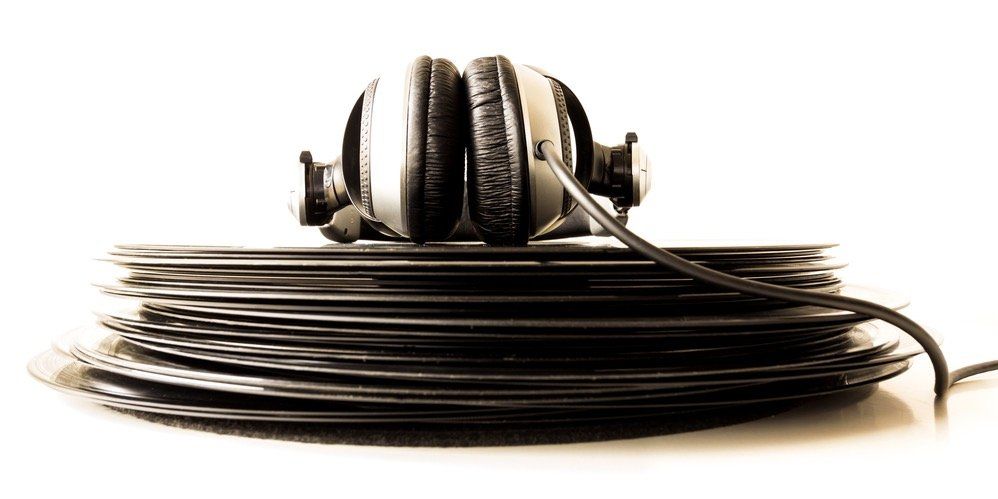4 Reasons Why Vinyl is a Must For Any Home Theatre System
After decades of being hidden away in second hand stores, basements and crawl spaces, vinyl, in all its nostalgic glory, is back! Store shelves are being stocked with records (both the oldies as well as the new stuff); and the internet is abuzz with old school “LP” love. And why not!? These are exciting times. We as a listening society have been to the edge of the musical cliff. We’ve stared into the abyss (boy bands, autotune, the Ashlee Simpson Saturday Night Live lip sync debacle etc.), and somehow we’ve made our way back.
So, for those who truly know, love and appreciate music, you have the right to rejoice! And for those of you who still aren’t convinced, here are four reasons why vinyl needs to be a foundational part of your home theatre mix:
The Sound
Vinyl sounds better, plain and simple. When you compare (on systems of similar price and scope), it’s easy to hear the difference. No, it’s not psychological; it’s not preference; and it’s certainly not the rantings of one biased individual. Rather, there is a technological explanation behind this very real truth. Simply put, digital music files are compressed (shrunken) into a format called “lossy”. The result of this process? Much of the mix is cut out and/or made to be indiscernible.
A real downer for those of us who crave the real thing.
Vinyl, on the other hand, is pressed in a format called “lossless”. Nothing is hidden, nothing is chopped; nothing is lost; rather, everything is present in it’s full musical glory. You hear the mix that the studio pros and the musicians wanted you (the listener) to hear. You hear the original vision for each song, long before the sticky fingers of modern technology stole it away.
Sweet relief.
The Story (playing a record from start to finish: it just makes sense)
Albums, even now in the digital age (but certainly for decades leading up to the digital takeover) are created to be stories; complete with a beginning, a middle and an end. Could you imagine starting a 400 page book on the 200th page? You’d be completely lost, or, at the very least, you’d miss important details that would have served to fill out the story arc.
But, this is exactly what we do when we buy a single song from Itunes or Google Music. Sure, we get a great piece of music, but we miss the story, and the experience of seeing how that song fits into the grand scheme of things. Vinyl encourages listening from start to finish. This is not only refreshing, it’s downright soothing.
The Complete Immersive/Sensory Experience
There’s something gloriously refreshing about the physical experience that a vinyl record player provides it’s user. At the beginning of it all, you to choose an album. You then remove the record from it’s cover/casing (a cover that demands your attention with eye-catching artwork and lyrics) and place it on the “platter”. You then turn on the record player, and move the needle into position. After 4-6 songs, flip record and repeat.
A complete musical experience should impact us on various levels. And, more than simply our ears, this type of listening reaches our touch, smell and vision. This is truly immersive. This is music played the way it was meant to be played.
Resale/Collector’s Options
Currently, there is a huge market for secondhand vinyl. Collectors are scouring the country-side even as you read this post, looking for that one record that they haven’t been able to find.
So, if ever you decide to sell some of your collection (if you’re downsizing or looking to swap out some of your current LP’s for different styles or genres), there are buying/selling options available to you. This is much easier than selling that song you downloaded yesterday (and by “a lot easier”, I mean “possible in the slightest”).
Now, I should say, there is still room for the conveniences of modern technology; you can’t go for a run with a vinyl record player in tow, after all. However, what I am saying is this: that there is certainly room for vinyl in the grand scheme of your home audio master plan.
Convinced now? If so, then welcome; we’ve been expecting you. Still wondering/mulling over your options (and I’m not sure how you could be)? Give it a shot. You won’t be disappointed; I promise.
Recent Posts



Contact Me Anytime!
The best way to get ahold of me is to submit through the contact form below. However feel free to give me a shout on the phone as well.





